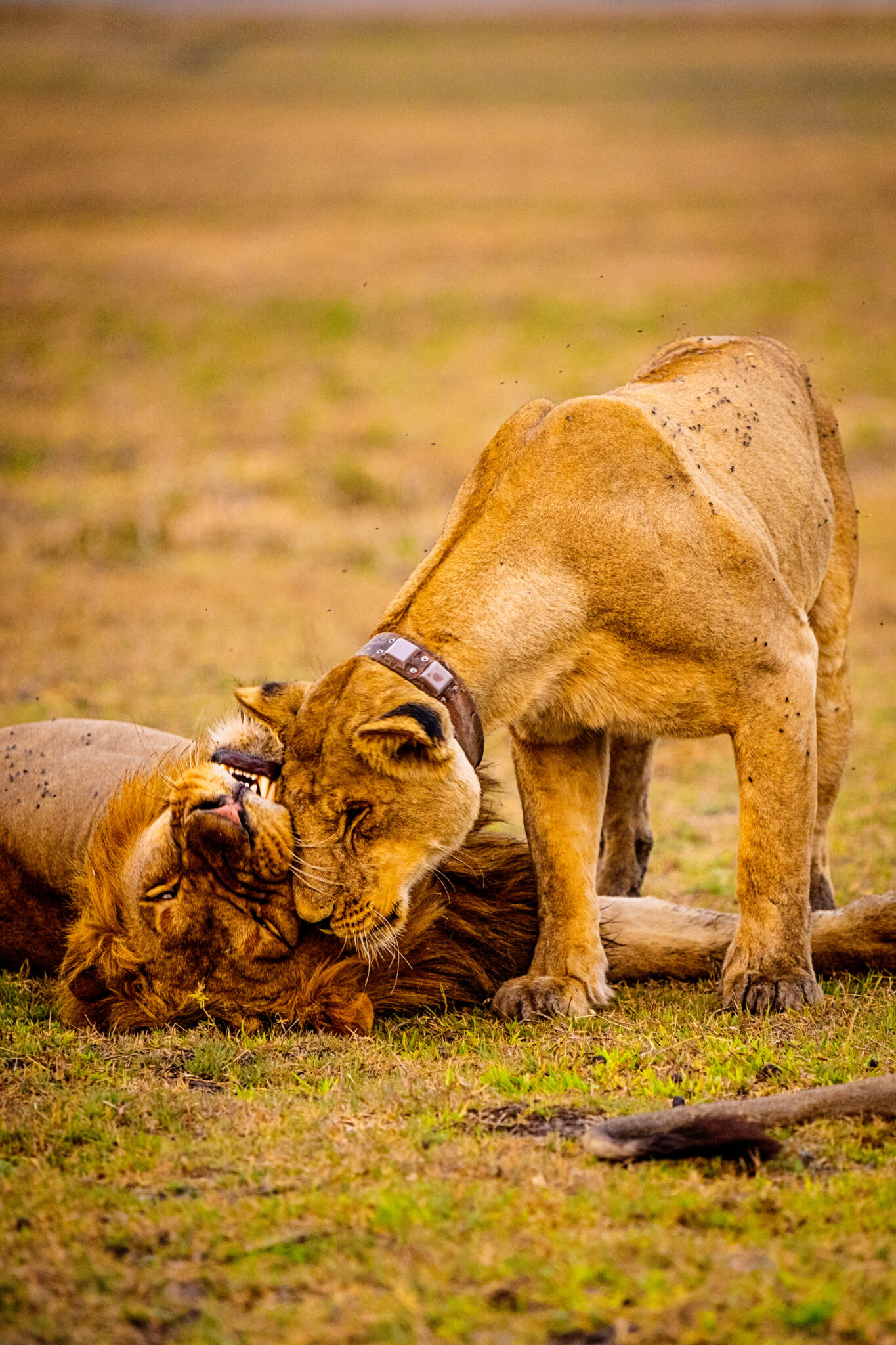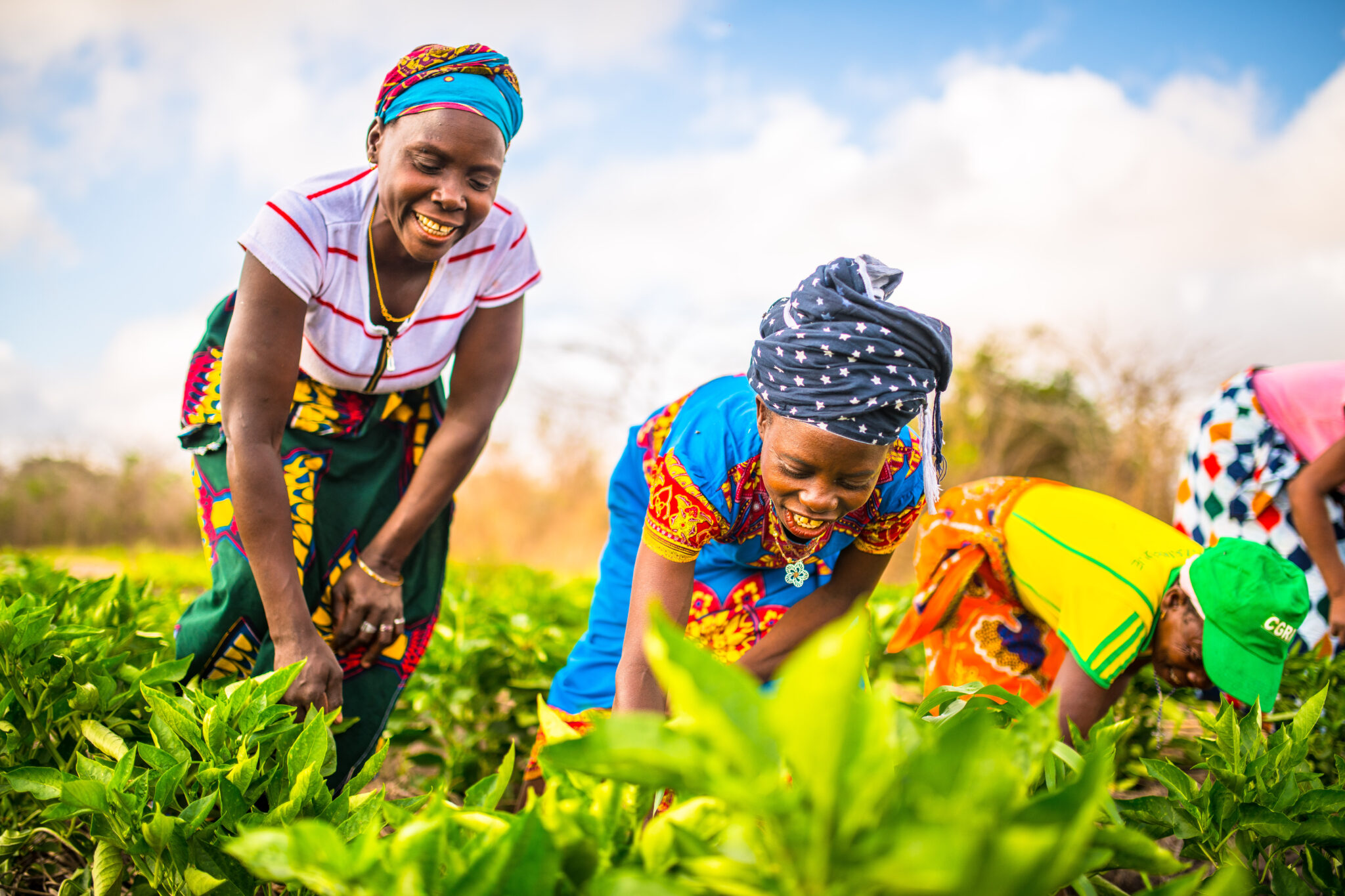29 March 2019
National Geographic go behind the scenes in branded content partnership of Gemfields’ vital projects supporting African communities and conservation
Gemfields, the world’s leading supplier of responsibly sourced coloured gemstones, is partnering with National Geographic to lift the veil on vital projects carried out by Gemfields in Africa, benefitting both community and conservation.
Gemfields’ gemstone mining operations in both Zambia and Mozambique provide a significant benefit to these African countries, not only through a substantial source of taxation to the national economy, but in additional projects chosen for the difference they make in protecting Africa’s rich biodiversity and promoting sustainable livelihoods for local communities.
The two short films follow National Geographic photographer and filmmaker Shannon Wild as she explores the communities and environments that have benefitted by projects supported by Gemfields. Shannon is at the heart of each film and viewers are given a once-in-a-lifetime opportunity to see the landscape, animals and people she encounters through her eyes.
 Film 1: Conservation, Zambia
The first film - based in Zambia’s Kafue National Park, highlights the Zambian Carnivore Programme (ZCP), which both studies large carnivores and addresses threats to them and their ecosystem, to assist their onward survival.
The Greater Kafue Ecosystem is the largest protected area in Zambia and the second largest National Park in Africa. Kafue is home to large numbers of lion, cheetah and wild dogs and studies of their population, interaction with human population and the ecosystem is a key part of ZCP’s work.
“The Zambian Carnivore Programme monitors Kafue’s large carnivores using advanced satellite tracking collars funded by Gemfields” explains Shannon.
“ZCP contributes life-saving research about these animals,” says Shannon. “By fitting just one lioness with a collar, the team can extrapolate information on the whole pride. It’s opened up a whole new window on their world.”
Gemfields has been crucial to this work through funding the purchase and deployment of satellite tracking collars. The satellite collars are far more efficient than the old VHF collars they replaced and ZCP aims to visit every collared animal once a week. If they find a snared animal they will treat and release it in the field, if it is injured through natural activity then they won’t intervene.
https://www.nationalgeographic.com/animals/2019/02/partner-content-saving-predators-zambia/
Discover the full length film on protecting Africa's precious predators here
Film 1: Conservation, Zambia
The first film - based in Zambia’s Kafue National Park, highlights the Zambian Carnivore Programme (ZCP), which both studies large carnivores and addresses threats to them and their ecosystem, to assist their onward survival.
The Greater Kafue Ecosystem is the largest protected area in Zambia and the second largest National Park in Africa. Kafue is home to large numbers of lion, cheetah and wild dogs and studies of their population, interaction with human population and the ecosystem is a key part of ZCP’s work.
“The Zambian Carnivore Programme monitors Kafue’s large carnivores using advanced satellite tracking collars funded by Gemfields” explains Shannon.
“ZCP contributes life-saving research about these animals,” says Shannon. “By fitting just one lioness with a collar, the team can extrapolate information on the whole pride. It’s opened up a whole new window on their world.”
Gemfields has been crucial to this work through funding the purchase and deployment of satellite tracking collars. The satellite collars are far more efficient than the old VHF collars they replaced and ZCP aims to visit every collared animal once a week. If they find a snared animal they will treat and release it in the field, if it is injured through natural activity then they won’t intervene.
https://www.nationalgeographic.com/animals/2019/02/partner-content-saving-predators-zambia/
Discover the full length film on protecting Africa's precious predators here

 Film 2: Communities, Mozambique
The second film explores Mozambican community projects which are in the immediate vicinity of Gemfields’ ruby mine in Montepuez. The film takes an inside look into three of Gemfields’ projects including: a primary school, mobile health clinic and a farming association.
On her visit, Shannon confides, “It’s been a real eye-opener for me to see how Gemfields is trying to give back to the local community: it’s making a world of difference.”
Before Gemfields introduced formalised mining operations, the remote Montepuez community had little or no access to healthcare. Now, two mobile health clinics in Mozambique serve six remote villages of around 10,000 people.
Gemfields has also created nine farming associations (two of which are run by women) in Mozambique, providing training in agricultural techniques such as crop rotation, pest control and conservation farming as well as teaching the community how to manage these projects autonomously. The projects are designed to enable individuals to foster a sustainable livelihood.
At the heart of the community is education. Gemfields has established four schools in Mozambique with a combined capacity of 2,000 students.
https://www.nationalgeographic.com/environment/2019/03/partner-content-hidden-gems-helping-african-community/
Discover the full length film on creating sustainable livelihoods here
The two short films add texture to the characters portrayed in Gemfields’ latest advertising campaign – the rhino symbolising conservation projects and the feather sculpture, health painting and paper sculpture all representing the different types of community projects.
Film 2: Communities, Mozambique
The second film explores Mozambican community projects which are in the immediate vicinity of Gemfields’ ruby mine in Montepuez. The film takes an inside look into three of Gemfields’ projects including: a primary school, mobile health clinic and a farming association.
On her visit, Shannon confides, “It’s been a real eye-opener for me to see how Gemfields is trying to give back to the local community: it’s making a world of difference.”
Before Gemfields introduced formalised mining operations, the remote Montepuez community had little or no access to healthcare. Now, two mobile health clinics in Mozambique serve six remote villages of around 10,000 people.
Gemfields has also created nine farming associations (two of which are run by women) in Mozambique, providing training in agricultural techniques such as crop rotation, pest control and conservation farming as well as teaching the community how to manage these projects autonomously. The projects are designed to enable individuals to foster a sustainable livelihood.
At the heart of the community is education. Gemfields has established four schools in Mozambique with a combined capacity of 2,000 students.
https://www.nationalgeographic.com/environment/2019/03/partner-content-hidden-gems-helping-african-community/
Discover the full length film on creating sustainable livelihoods here
The two short films add texture to the characters portrayed in Gemfields’ latest advertising campaign – the rhino symbolising conservation projects and the feather sculpture, health painting and paper sculpture all representing the different types of community projects.
 Film 1: Conservation, Zambia
The first film - based in Zambia’s Kafue National Park, highlights the Zambian Carnivore Programme (ZCP), which both studies large carnivores and addresses threats to them and their ecosystem, to assist their onward survival.
The Greater Kafue Ecosystem is the largest protected area in Zambia and the second largest National Park in Africa. Kafue is home to large numbers of lion, cheetah and wild dogs and studies of their population, interaction with human population and the ecosystem is a key part of ZCP’s work.
“The Zambian Carnivore Programme monitors Kafue’s large carnivores using advanced satellite tracking collars funded by Gemfields” explains Shannon.
“ZCP contributes life-saving research about these animals,” says Shannon. “By fitting just one lioness with a collar, the team can extrapolate information on the whole pride. It’s opened up a whole new window on their world.”
Gemfields has been crucial to this work through funding the purchase and deployment of satellite tracking collars. The satellite collars are far more efficient than the old VHF collars they replaced and ZCP aims to visit every collared animal once a week. If they find a snared animal they will treat and release it in the field, if it is injured through natural activity then they won’t intervene.
https://www.nationalgeographic.com/animals/2019/02/partner-content-saving-predators-zambia/
Discover the full length film on protecting Africa's precious predators here
Film 1: Conservation, Zambia
The first film - based in Zambia’s Kafue National Park, highlights the Zambian Carnivore Programme (ZCP), which both studies large carnivores and addresses threats to them and their ecosystem, to assist their onward survival.
The Greater Kafue Ecosystem is the largest protected area in Zambia and the second largest National Park in Africa. Kafue is home to large numbers of lion, cheetah and wild dogs and studies of their population, interaction with human population and the ecosystem is a key part of ZCP’s work.
“The Zambian Carnivore Programme monitors Kafue’s large carnivores using advanced satellite tracking collars funded by Gemfields” explains Shannon.
“ZCP contributes life-saving research about these animals,” says Shannon. “By fitting just one lioness with a collar, the team can extrapolate information on the whole pride. It’s opened up a whole new window on their world.”
Gemfields has been crucial to this work through funding the purchase and deployment of satellite tracking collars. The satellite collars are far more efficient than the old VHF collars they replaced and ZCP aims to visit every collared animal once a week. If they find a snared animal they will treat and release it in the field, if it is injured through natural activity then they won’t intervene.
https://www.nationalgeographic.com/animals/2019/02/partner-content-saving-predators-zambia/
Discover the full length film on protecting Africa's precious predators here

 Film 2: Communities, Mozambique
The second film explores Mozambican community projects which are in the immediate vicinity of Gemfields’ ruby mine in Montepuez. The film takes an inside look into three of Gemfields’ projects including: a primary school, mobile health clinic and a farming association.
On her visit, Shannon confides, “It’s been a real eye-opener for me to see how Gemfields is trying to give back to the local community: it’s making a world of difference.”
Before Gemfields introduced formalised mining operations, the remote Montepuez community had little or no access to healthcare. Now, two mobile health clinics in Mozambique serve six remote villages of around 10,000 people.
Gemfields has also created nine farming associations (two of which are run by women) in Mozambique, providing training in agricultural techniques such as crop rotation, pest control and conservation farming as well as teaching the community how to manage these projects autonomously. The projects are designed to enable individuals to foster a sustainable livelihood.
At the heart of the community is education. Gemfields has established four schools in Mozambique with a combined capacity of 2,000 students.
https://www.nationalgeographic.com/environment/2019/03/partner-content-hidden-gems-helping-african-community/
Discover the full length film on creating sustainable livelihoods here
The two short films add texture to the characters portrayed in Gemfields’ latest advertising campaign – the rhino symbolising conservation projects and the feather sculpture, health painting and paper sculpture all representing the different types of community projects.
Film 2: Communities, Mozambique
The second film explores Mozambican community projects which are in the immediate vicinity of Gemfields’ ruby mine in Montepuez. The film takes an inside look into three of Gemfields’ projects including: a primary school, mobile health clinic and a farming association.
On her visit, Shannon confides, “It’s been a real eye-opener for me to see how Gemfields is trying to give back to the local community: it’s making a world of difference.”
Before Gemfields introduced formalised mining operations, the remote Montepuez community had little or no access to healthcare. Now, two mobile health clinics in Mozambique serve six remote villages of around 10,000 people.
Gemfields has also created nine farming associations (two of which are run by women) in Mozambique, providing training in agricultural techniques such as crop rotation, pest control and conservation farming as well as teaching the community how to manage these projects autonomously. The projects are designed to enable individuals to foster a sustainable livelihood.
At the heart of the community is education. Gemfields has established four schools in Mozambique with a combined capacity of 2,000 students.
https://www.nationalgeographic.com/environment/2019/03/partner-content-hidden-gems-helping-african-community/
Discover the full length film on creating sustainable livelihoods here
The two short films add texture to the characters portrayed in Gemfields’ latest advertising campaign – the rhino symbolising conservation projects and the feather sculpture, health painting and paper sculpture all representing the different types of community projects.